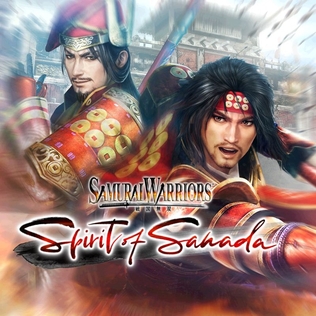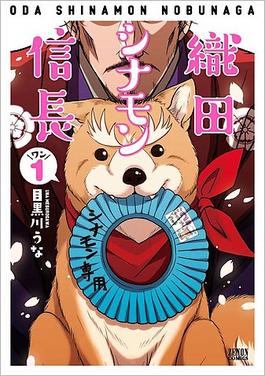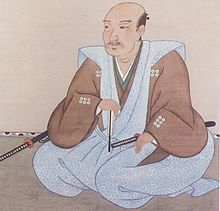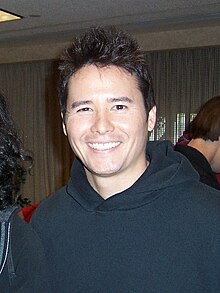
Takeda Shingen was daimyo of Kai Province during the Sengoku period of Japan. Known as the "Tiger of Kai", he was one of the most powerful daimyo of the late Sengoku period, and credited with exceptional military prestige. Shingen was based in a poor area with little arable land and no access to the sea, but he became one of Japan's leading daimyo. His skills are highly esteemed and on par with Mōri Motonari.

Sanada Nobushige, also known as Sanada Yukimura, was a Japanese samurai warrior of the Sengoku period. He was especially known as the leading general on the defending side of the Siege of Osaka. Yukimura was called "A Hero who may appear once in a hundred years", "Crimson Demon of War" and "The Last Sengoku Hero". The famed veteran of the invasion of Korea Shimazu Tadatsune called him the "Number one warrior in Japan" (日本一の兵).
Sarutobi Sasuke is a ninja who appears in kōdan narrative art and fictional writings. The nickname is generally believed to have been concocted sometime between the Meiji to the Taishō periods. Some argue he is based on real live personages, such as Kōzuki Sasuke and Sarutobi Nisuke. His family name, meaning "monkey jump", is written with two kanji; saru (猿) is the character for "monkey", and tobi (飛) is the character for "jump". He was known for his monkey-like agility and quickness, especially in trees. Many depictions portray him as having been orphaned and raised by a band of monkeys, therefore giving rise to the monkey-like abilities. He has been described as a superhero ninja, and caused a boom of ninjas in popular culture during the 1910s-1920s in Japan.
The Sanada Ten Braves are a fictional group of ninja that assisted the warlord Sanada Yukimura during the Warring States era of Japan; that is, the late Sengoku period and its immediate aftermath, also known as the Azuchi–Momoyama and the early Edo periods.

Takeda Nobushige was a samurai of Japan's Sengoku period, and younger brother of Takeda Shingen. He was known as one of the "Twenty-Four Generals of Takeda Shingen".

Devil Kings, known in Japan as Sengoku Basara (戦国BASARA), is a 2005 video game for the PlayStation 2, developed and published by Capcom. It is the first installment in the Sengoku Basara franchise. The game's theme song for the Japanese version is "Crosswise" by T.M.Revolution. The western version featured a prologue, along with an original piece, due to license restrictions. The game was followed by several sequels and an anime series, all of them using the original title and setting of Sengoku Basara only.

Sanada Nobuyuki was a Japanese samurai of the Sengoku period. He was the son of daimyō Sanada Masayuki and the older brother of Sanada Yukimura.

Sanada Yukitaka was a Japanese samurai warrior of the Sengoku period. He is known as one of the "Twenty-Four Generals of Takeda Shingen". He was the father of Sanada Nobutsuna and Sanada Masayuki and grandfather of the legendary samurai warrior Sanada Yukimura of whom served Toyotomi clan.

Sengoku Basara (戦国BASARA) is a series of video games developed and published by Capcom, and a bigger media franchise based on it, including three anime shows, an anime movie, a live action show, and numerous drama CDs, light novels, manga, and stage plays. Its story is loosely based on real events of the titular Sengoku period in the history of feudal Japan. Sengoku Basara was popular in Japan when the games released as they won multiple awards, became a cultural phenomenon and a commonly cited example of games as art, and gained a passionate fanbase.
Many significant Japanese historical people of the Sengoku period appear in works of popular culture such as anime, manga, and video games. This article presents information on references to several historical people in such works.

Sengoku Basara: Samurai Kings is a Japanese anime television series based on the Capcom video game series of the same name made by Production I.G, planned and written by Yasuyuki Muto, and chiefly directed by Itsuro Kawasaki. The series started broadcast on Japan's Chubu-Nippon Broadcasting (CBC) station in April 2009; other networks broadcast the episodes within a few days, including TBS, MBS, and Animax. Its first season made its North American television debut on the Funimation Channel on November 16, 2010.

Sengoku BASARA Samurai Heroes, known in Japan as Sengoku BASARA 3, is a 2010 hack and slash, action video game developed and published by Capcom. It is the third major installment in the Sengoku BASARA game series and the second game in the series to be released worldwide. It was released for the PlayStation 3 and Wii in July 2010 in Japan and worldwide in October.

Sengoku Basara: The Last Party is an anime film that portrays the end of the Sengoku period. It is a sequel to an anime series known as Sengoku Basara: Samurai Kings. The film was released in Japanese theaters on June 4, 2011. Kazuya Nakai, Sōichirō Hoshi, Tōru Ōkawa, Tomokazu Seki, Masakazu Morita, Toshiyuki Morikawa, Takehito Koyasu, Norio Wakamoto, and Mamiko Noto reprise their roles from the Samurai Kings series with Fumihiko Tachiki, Show Hayami, and Jun Fukuyama co-starring as those who first appeared in Sengoku Basara: Samurai Heroes.

BRAVE10 is a manga series by Kairi Shimotsuki, serialized in Media Factory's Comic Flapper from 2006 to 2010. The series was resumed on June 15, 2011 and retitled Brave 10 Spiral, better known as Brave 10 S, serialized in Monthly Comic Gene. An anime adaptation by Studio Sakimakura and TMS Entertainment aired from January 2012 to March 2012. The original manga series is licensed by Tokyopop, though no volumes have been released as of 2012. The series is based on the legendary Sanada Ten Braves, a group of ninja that assisted warlord Sanada Yukimura during the Sengoku period of Japan. The series had been licensed for streaming on Crunchyroll.

Sengoku Basara: End of Judgement is an anime television series based on the Sengoku Basara games originally created by CAPCOM. It began airing on July 6, 2014 on NTV and tells its own version of the story from the video game Sengoku Basara: Samurai Heroes.

Samurai Warriors is a Japanese anime adaptation of Samurai Warriors 4-II. It takes place after the events of its previous animated TV special. Original characters appeared in this narrative to deviate from its base. Voice actors from the game reprise their roles for their respective characters.

Samurai Warriors: Spirit of Sanada, known in Japan as Sengoku Musou ~Sanada Maru~, is a hack and slash game by Koei Tecmo through their development subsidiary, Omega Force. It is a spin-off of Samurai Warriors 4, part of the Samurai Warriors series, which in turn is a spin-off of the long-running Dynasty Warriors series, both of which are also hack and slash games. It was released on November 23, 2016 in Japan to coincide with the airing of the climax episode of the ongoing NHK TV taiga drama Sanada Maru. It was released in North America and Europe in 2017.

Sengoku Night Blood was a Japanese free-to-play otome game, developed as a collaboration between Marvelous Entertainment, Kadokawa, and Idea Factory's Otomate. It was released in Japan on May 29, 2017, for Android and iOS devices. A 12-episode anime television series adaptation by Typhoon Graphics aired between October 3 and December 26, 2017. A Nintendo Switch port of the game was planned, but it was announced on October 24, 2019 that the Switch port was cancelled along with the mobile game being discontinued on December 25, 2019.

Date Masamune is a character from Capcom's Sengoku Basara video game franchise, first introduced in the 2005 video game Devil Kings. In the North American and European versions, he is known as a warrior named Azure Dragon, but retained his original name in the series' third title. As with most Sengoku Basara characters, Masamune was loosely based on Japanese historical figure Date Masamune.

Oda Cinnamon Nobunaga is a Japanese manga series by Una Megurogawa. It has been serialized in Tokuma Shoten's seinen manga magazine Monthly Comic Zenon, as well as the webmagazine Web Comic Zenyon, since June 2014 and has been collected in ten tankōbon volumes. An anime television series adaptation by Studio Signpost premiered from January 10 to March 27, 2020.



















